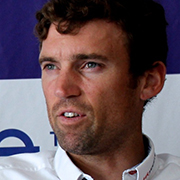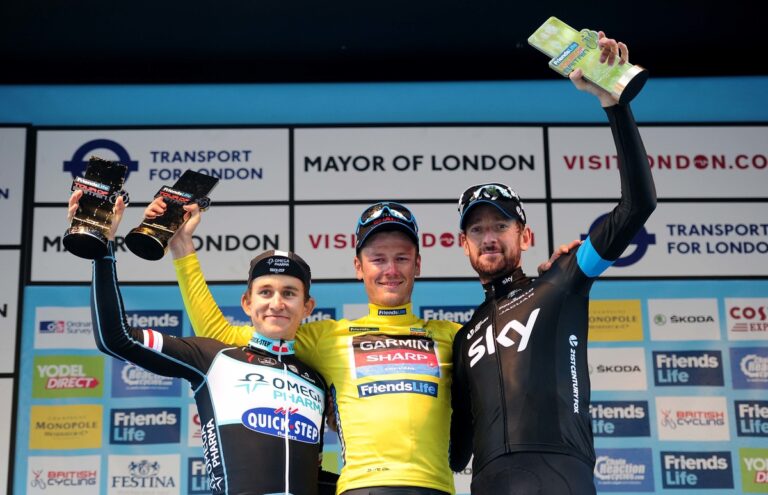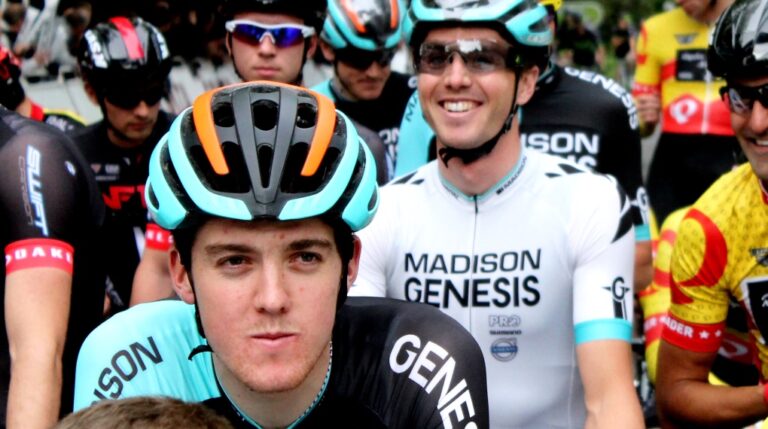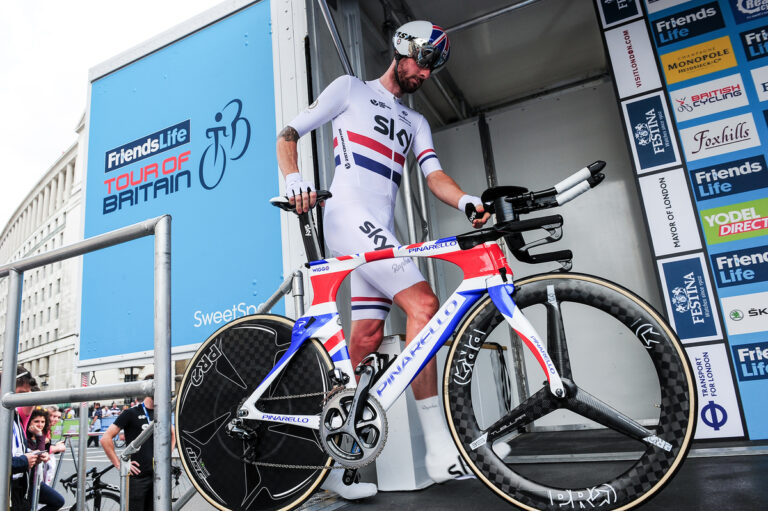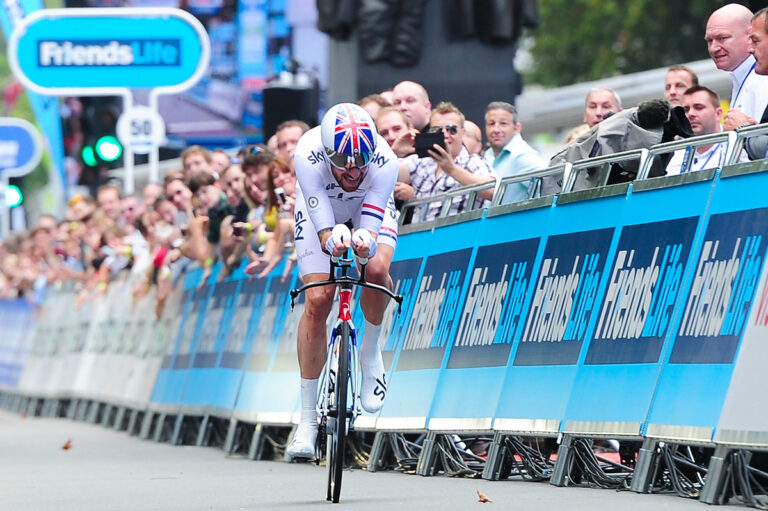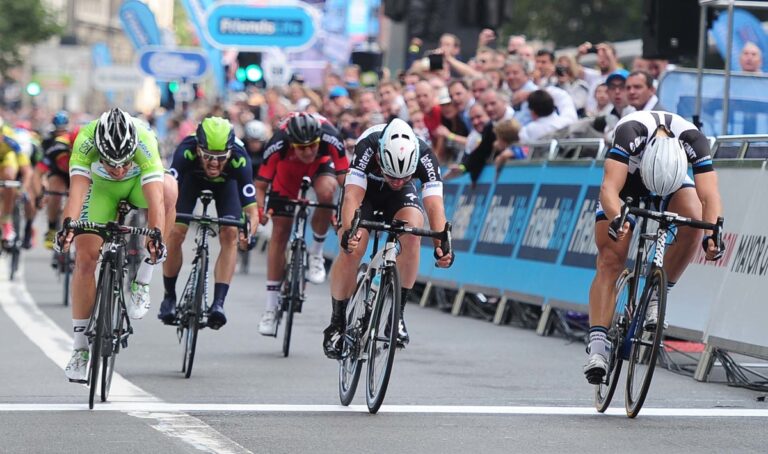Liverpool hosts the first stage of the 2014 Tour of Britain on Sunday September 7, with the some of the WorldTour’s elite joining the leading British domestic pros on the Merseyside start line.
First among the latter will be riders such as newly-crowned Elite Road Series champion Yanto Barker (Team Raleigh), who will be one of the six-strong team pulling on the iconic red and yellow jerseys of the Nottingham-based team.

Barker, who last year was also ranked British domestic number one, is no stranger to the Tour of Britain – a ninth-place overall in 2005 being his best result to date, when he finished as the highest-placed Brit.
And having switched from the now-defunct Team UK Youth in the winter to join a Team Raleigh squad packed with experience, Barker believes the team are well-equipped to get results next week.
“I think we have some key individuals who, on certain days, will deliver some very respectable results against WorldTour opposition – myself included,” he told RCUK.
“We have a good team, we have a clear structure and hierarchy in terms of what we’re looking to deliver on the day or during the week and we’re also very committed and disciplined to every individual pulling their weight and doing their job.
I don’t think any of the top rung domestic based riders have anything to worry about. I expect some really good performances from some of the UK guys.
“I don’t think any of the top rung domestic based riders have anything to worry about. We have shown we can compete at WorldTour level given the right environment and given the right preparation we can know the roads and know what to expect.
“I expect some really good performances from some of the UK guys. You saw at RideLondon, Adam Blythe winning. It wouldn’t surprise me if a number of people had the opportunity to do that again next week.”
Barker’s confidence in his team has certainly been buoyed by the performances on the revamped British domestic scene this year, with his Elite Road Series triumph matched by a team win too.
Having successfully defended the red jersey of series leader for much of the summer – beating former UK Youth team-mate Marcin Bialoblocki to the title – Barker considers the win a significant triumph.

“It means a lot because it’s the culmination of a season-long contest, contested against the best riders in the country and it’s the hardest races as well,” he said.
“There’s no accident in a season-long series like that. In the crits you can find yourself bumbling through a little bit, being in the right place at the right time, but road races of 100-120 miles you have to work a bit more diligently so it means a great deal to me and I’m really pleased.
“I would say to win it takes a combination of fitness and physical ability, but along with an ability to calculate and judge the tactical situation on the road.
“Ultimately you can be the best guy in the country but if you’re timing it wrong and making efforts where they aren’t going to make a difference then you are not going to get anywhere at all.
It means a lot because it’s the culmination of a season-long contest, contested against the best riders in the country and it’s the hardest races as well. There’s no accident in a season-long series like that.
“It is about understanding the terrain, the competitors and your own ability in that context.”
And Barker, 34, believes the experience of the Raleigh team – who also boast veteran Ian Wilkonson, 35, in their ranks – came to the fore as they achieved exactly that over the season.
He explained: “Team experience comes down to having to make split-second decisions and implementing those strategies effectively on the road.
“You plan for contingencies in the team meetings, but you don’t know who or how it’s going to unfold.

“You need a team that understands when we’re going to ride, we’re going to ride at this speed and make sure we cross the gap by this time and all the different scenarios that play out, we need to know how to respond and convey accurately and clearly to each other what is expected.
“You lose speed while you’re going through that process, but an experienced team will deliver more efficiently.
“It’s a very difficult balancing act between individual results, team results and overall team in the standings.
“What I think we have done well is win a good number of rounds, a good number of team rounds and we’ve also backed each other to be a solid unit at every race and that meant different riders at different races when the race suited one or another.
To have the individual winner, in myself, and the team win and the individual wins along the way – that is a significant achievement and is not an accident. It was carefully planned.
“We always galvanised ourselves and formed to our strengths. Certain teams on the circuit compromised their team result for the individual win, or their individual result for the team win, whereas we managed to do both.
“To have the individual winner, in myself, and the team win and the individual wins along the way – that is a significant achievement and is not an accident. It was carefully planned.”
The success is similar to that which Barker and Wilkinson enjoyed at Team UK Youth last year, where Nigel Mansell’s team enjoyed a stunning season on the domestic scene.
Last time out Barker had been a large part of the team selection, as Team UK Youth assembled a squad which would go on to win the Tour Series – courtesy of five individual wins and nine team triumphs – Rutland-Melton, An Post Ras and, through Barker, boast the domestic number one rider.

After an at-times frustrating winter searching for a team, however, Barker did not have the same influence over who he rode with this season.
And as a result he believes to have been crowned Elite Road Series winner is a bigger achievement.
“If I was to compare to Team UK Youth last year, it has been quite different in that my influence in the team last year was far broader than this year,” he explained.
“A large part of the choosing of the roster was my decision last year. I had a big influence in personalities who I thought I could work with and who could deliver on their potential.
I think it’s more of an achievement this year to be number one ranked rider than it was last year. For all the broader influence I had, this year I had to go in and do the same thing but with a team which already existed and which I had no influence in picking.
“Having that influence I planned how we were going to do it before the season started. That helped, and when you look at the record-breaking results we had last year that comes through and you can see how that planning does make a difference.
“I think I can do a good job doing that, and last year demonstrates it. This year I haven’t had the opportunity because I came into something that already had its parts in their place.
“I wasn’t going to march in and rock the boat. I would rather bring what I could to the table in a complementary way.
“I think it’s more of an achievement this year to be number one ranked rider than it was last year. For all the broader influence I had, this year I had to go in and do the same thing but with a team which already existed and which I had no influence in picking.”

Planning is a theme which comes through regularly in conversation with Barker, a rider whose ambitions are achieved through understanding every fine detail along the way.
Taking charge of a team is a role, by his own admission, he would not rule out with 17 years of professional experience behind him.
More immediately, however, the planning comes down to achieving success at the Tour of Britain, which ties back to his initial belief in the ability of Team Raleigh to get a result.
With ‘home advantage’ to an extent, Barker admits local knowledge of the route and roads – and the ability to train on them – will certainly be an important feature.
“Knowing the route is key,” he said. “I can’t tell you how many times you go up a climb in Europe that you don’t know and you’re thinking, ‘I don’t know how long I can go on’.
“Whereas if you knew the road you would be more secure in the knowledge of what’s coming and what you can do.
Knowing the route is key,” he said. “I can’t tell you how many times you go up a climb in Europe that you don’t know and you’re thinking, ‘I don’t know how long I can go on’.
“So that is definitely key, and obviously we’ve done a lot of the terrain and climbs in the past so I know what to expect and will be sharing that.
“Training specifically is also important. We prepare in lots of ways for the most common kind of efforts that we are going to encounter trying to get a result, whether that’s getting over a climb and needing to do 15 minute efforts to get up The Tumble or more specific work because there will be sprint stages where a result is achievable.
“It’s very important and it makes a big difference.”
Such meticulous planning and preparation has already brought Barker victory at the Evesham Vale Road Race and Lincoln GP, while Raleigh have enjoyed success through the likes of Matthieu Boulo at the Tour Series, Morgan Kneisky at the Stafford GP and Wilkinson at the Eddie Soens Memorial.
Now, the team hope it will bring success in the biggest race on the British calendar – and Barker’s confidence certainly does not seem misplaced as a result.
Have you picked Yanto Barker in your Fantasy Tour of Britain team? Enter here for your chance to win £500 worth of kit from Dare 2b.

